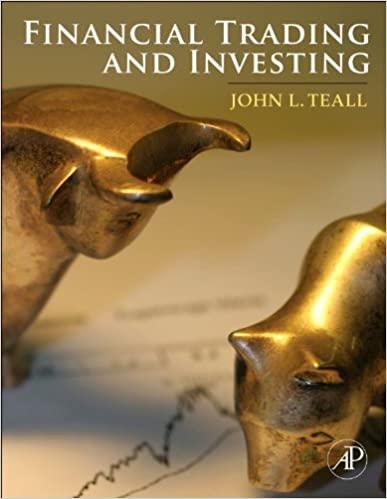9. Suppose that an investor has the opportunity (and funding ability) to pay $100,000 for a 50%...
Question:
9. Suppose that an investor has the opportunity (and funding ability) to pay $100,000 for a 50% chance to win $300,000 and a 50% chance of winning nothing.
a. What is the expected value of the gamble?
b. What is the standard deviation of payoffs for this gamble?
c. Suppose that you have the opportunity (and funding ability) to repeat participation in this gamble for a total of five gambles. Each wager’s outcome is independent of the outcomes of all other wagers (the correlation coefficient between wager payoffs is zero). What is the expected value of this set of five wagers?
d. What is the standard deviation for this set of five wagers?
e. Which set of wagers has a higher expected payoff—that described in parts a and b of this question or that described in parts c and d of this question?
f. Which set of wagers has a lower risk as measured by standard deviation—that described in parts a and b of this question or that described in parts c and d of this question?
g. Which set of wagers seems to be preferable based on your answers to parts a through f—the single wager or the set of five wagers?
h. Devise an argument that if an individual finds the gamble described in parts a and b unacceptable, he will also find the gambles described in parts c and d unacceptable.
Step by Step Answer:







